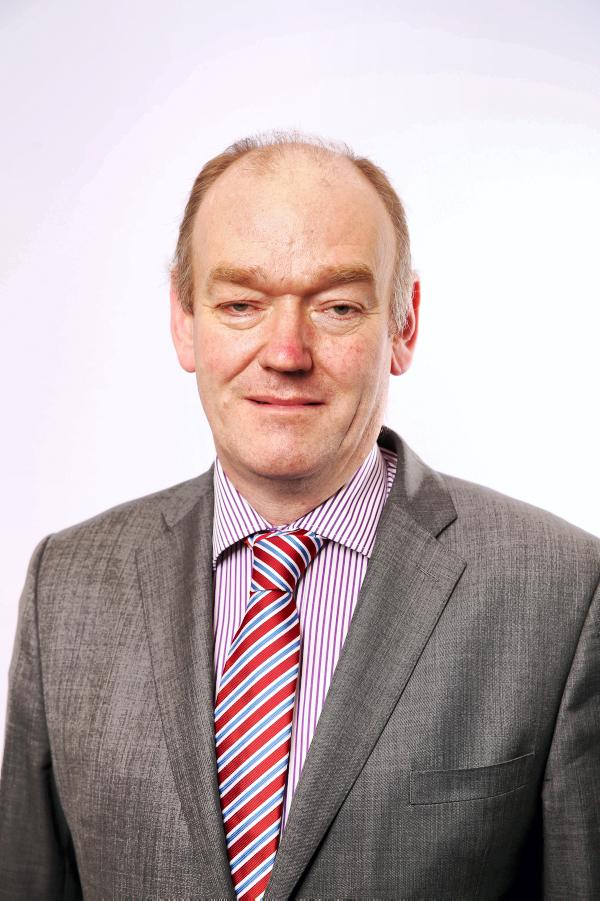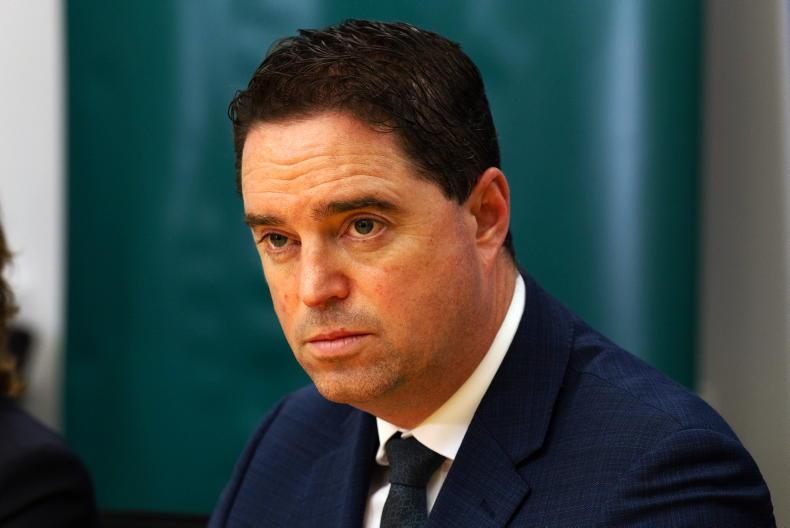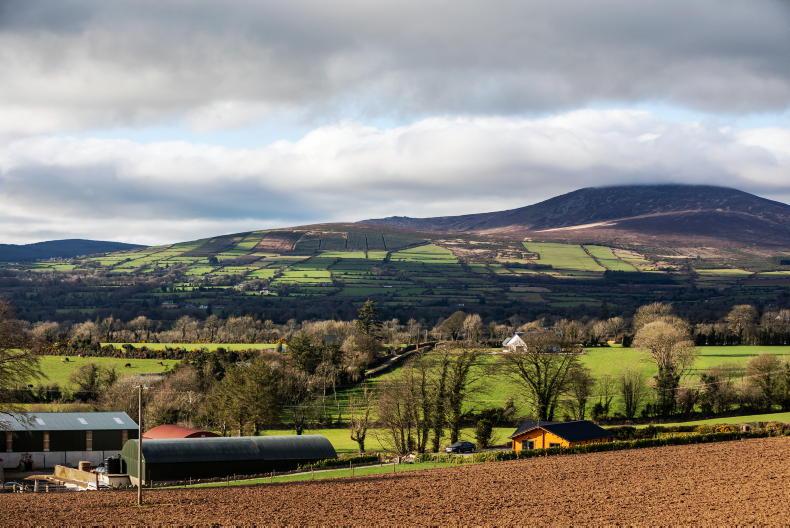With the CAP Pillar I and Pillar II proposals submitted to Brussels, the immediate issue for farmers is effective implementation over the next six months to ensure they get paid under the new schemes in 2015, IFA president Eddie Downey contends.
He pointed out a number of important issues on CAP Pillar I Single Farm Payment (SFP) that need to be dealt with by Minister for Agriculture Simon Coveney.
“In the case of young farmers, the criteria used to implement the top-up of €64/ha must be applied in a flexible way,” said Downey.
“On the National Reserve, the Minister must ensure that those farmers who have low entitlements as well as those who do not qualify for the young farmer top-up, as they have been farming for more than five years, secure additional payments to help achieve viability on their farms.”
He holds that greening still represents a major problem for tillage farmers: “It needs to be simplified and must be implemented in a more practical way.”
In relation to marginal land, Downey believes it is important that the commonage implementation committee commences its work immediately, as keeping land eligible for payment will be a priority.
Another priority is prompt payment.
“The SFP will be worth €1.2bn per annum for the next seven years. It is vital that payments are made on time,” said Downey.
“Fifty per cent of the 2014 SFP will be made on 16 October and IFA is demanding that all 125,000 farmers eligible are paid promptly, with the remaining 50% payment on 1 December.”
Area of Natural Constraint (ANC) payments (formerly the Disadvantaged Areas Scheme payments) worth €195m will commence in the third week of September, Downey added.
CAP Pillar II
Rural Development chair Flor McCarthy pointed to a strong IFA campaign through last winter that has delivered a rural development package worth €580m to Irish farmers annually.
“The plan has been submitted to Brussels and the priority for the Minister must be to ensure that vital schemes – such as GLAS, ANCs and Targeted Agricultural Modernisation Schemes (TAMS) – are implemented at an early date, with farmers allowed to fully draw down the allocated EU and national funding over the next six years up to 2020,” he said.
McCarthy is adamant that 30,000 farmers must be allowed to join the GLAS scheme in 2015.
“In the following years, the total number of farmers in the scheme must exceed 50,000, with the maximum payment €5,000,” he added. “Also, the 140kg N limit must not be a barrier to entry.”
Commonage issues need to be resolved
IFA Hill Committee chair Pat Dunne remains opposed to the 50% management agreement rule.
While progress was made in getting the Minister to reduce the requirement from 80% agreement to 50% of active commonage owners, or 50% of the commonage area, flexibility beyond this is required.
“IFA will hold the Minister to his commitment that in the event of the management agreement not being achieved in any commonage for legitimate reasons, active farmers affected will still get priority to participate in GLAS,” said Dunne.
Dunne echoed Eddie Downey’s insistence on the importance of getting the Minister’s implementation body, under the independent chairman Joe Healy, down to work immediately.
They must set up a liaison with commonage farmers on the ground to deal with the many issues arising, he said.
“Progress has been made on most of the key issues relating to GLAS, including the increase in the commonage payment to €120/ha, which will benefit smaller farmers, and eligibility to the GLAS+ payment,” said Dunne.
“However, the Minister must address the Natura payment and increase it in a similar way to other designations.
“The absolute priority is to get the GLAS open and secure the budget for thousands of hill farmers in vulnerable sectors and regions who need vital support.”
Budget 2015
Eddie Downey said that over €500m of funding for the RDP farm schemes must be provided in this October’s budget to pay for a range of farm schemes next year.
“Funding for farm schemes underpins farm incomes and output and is particularly relevant given the low income situation in some sectors,” he said.
The IFA is planning an intensive lobbying campaign in advance of the budget. A national lobby day for all rural TDs and senators takes place in Dublin on 17 September, in addition to local lobbying by IFA county executives.
Priorities include:
Commencement of contracts for the new agri-environment GLAS scheme in early 2015, with 30,000 farmers allowed into the scheme in its first year and payments made in 2015.Funding of €195m for ANCs.Allocation of €30m for TAMS to fund on-farm investment programmes across all sectors.Funding of €52m for the Beef Data and Genomic scheme to support the vulnerable suckler sector.Increased capital funding allocations for the horticulture, forestry and aquaculture sectors to achieve output targets and employment growth.
With the CAP Pillar I and Pillar II proposals submitted to Brussels, the immediate issue for farmers is effective implementation over the next six months to ensure they get paid under the new schemes in 2015, IFA president Eddie Downey contends.
He pointed out a number of important issues on CAP Pillar I Single Farm Payment (SFP) that need to be dealt with by Minister for Agriculture Simon Coveney.
“In the case of young farmers, the criteria used to implement the top-up of €64/ha must be applied in a flexible way,” said Downey.
“On the National Reserve, the Minister must ensure that those farmers who have low entitlements as well as those who do not qualify for the young farmer top-up, as they have been farming for more than five years, secure additional payments to help achieve viability on their farms.”
He holds that greening still represents a major problem for tillage farmers: “It needs to be simplified and must be implemented in a more practical way.”
In relation to marginal land, Downey believes it is important that the commonage implementation committee commences its work immediately, as keeping land eligible for payment will be a priority.
Another priority is prompt payment.
“The SFP will be worth €1.2bn per annum for the next seven years. It is vital that payments are made on time,” said Downey.
“Fifty per cent of the 2014 SFP will be made on 16 October and IFA is demanding that all 125,000 farmers eligible are paid promptly, with the remaining 50% payment on 1 December.”
Area of Natural Constraint (ANC) payments (formerly the Disadvantaged Areas Scheme payments) worth €195m will commence in the third week of September, Downey added.
CAP Pillar II
Rural Development chair Flor McCarthy pointed to a strong IFA campaign through last winter that has delivered a rural development package worth €580m to Irish farmers annually.
“The plan has been submitted to Brussels and the priority for the Minister must be to ensure that vital schemes – such as GLAS, ANCs and Targeted Agricultural Modernisation Schemes (TAMS) – are implemented at an early date, with farmers allowed to fully draw down the allocated EU and national funding over the next six years up to 2020,” he said.
McCarthy is adamant that 30,000 farmers must be allowed to join the GLAS scheme in 2015.
“In the following years, the total number of farmers in the scheme must exceed 50,000, with the maximum payment €5,000,” he added. “Also, the 140kg N limit must not be a barrier to entry.”
Commonage issues need to be resolved
IFA Hill Committee chair Pat Dunne remains opposed to the 50% management agreement rule.
While progress was made in getting the Minister to reduce the requirement from 80% agreement to 50% of active commonage owners, or 50% of the commonage area, flexibility beyond this is required.
“IFA will hold the Minister to his commitment that in the event of the management agreement not being achieved in any commonage for legitimate reasons, active farmers affected will still get priority to participate in GLAS,” said Dunne.
Dunne echoed Eddie Downey’s insistence on the importance of getting the Minister’s implementation body, under the independent chairman Joe Healy, down to work immediately.
They must set up a liaison with commonage farmers on the ground to deal with the many issues arising, he said.
“Progress has been made on most of the key issues relating to GLAS, including the increase in the commonage payment to €120/ha, which will benefit smaller farmers, and eligibility to the GLAS+ payment,” said Dunne.
“However, the Minister must address the Natura payment and increase it in a similar way to other designations.
“The absolute priority is to get the GLAS open and secure the budget for thousands of hill farmers in vulnerable sectors and regions who need vital support.”
Budget 2015
Eddie Downey said that over €500m of funding for the RDP farm schemes must be provided in this October’s budget to pay for a range of farm schemes next year.
“Funding for farm schemes underpins farm incomes and output and is particularly relevant given the low income situation in some sectors,” he said.
The IFA is planning an intensive lobbying campaign in advance of the budget. A national lobby day for all rural TDs and senators takes place in Dublin on 17 September, in addition to local lobbying by IFA county executives.
Priorities include:
Commencement of contracts for the new agri-environment GLAS scheme in early 2015, with 30,000 farmers allowed into the scheme in its first year and payments made in 2015.Funding of €195m for ANCs.Allocation of €30m for TAMS to fund on-farm investment programmes across all sectors.Funding of €52m for the Beef Data and Genomic scheme to support the vulnerable suckler sector.Increased capital funding allocations for the horticulture, forestry and aquaculture sectors to achieve output targets and employment growth. 









SHARING OPTIONS